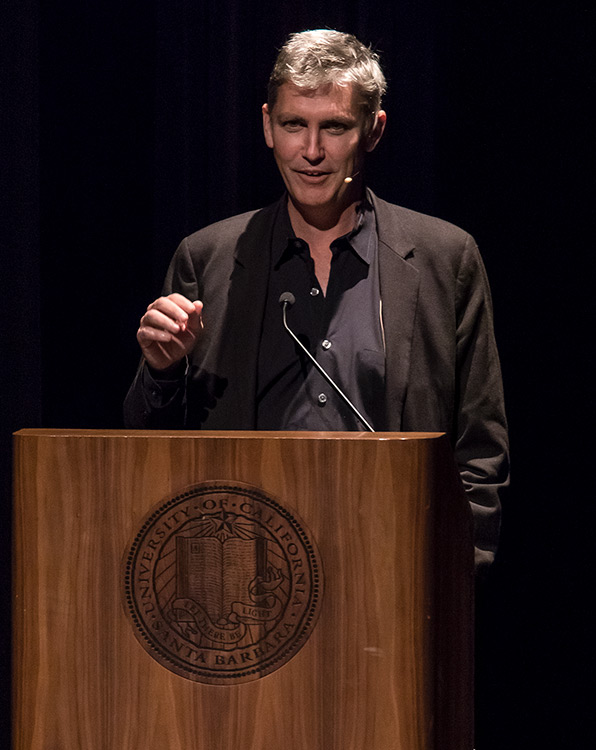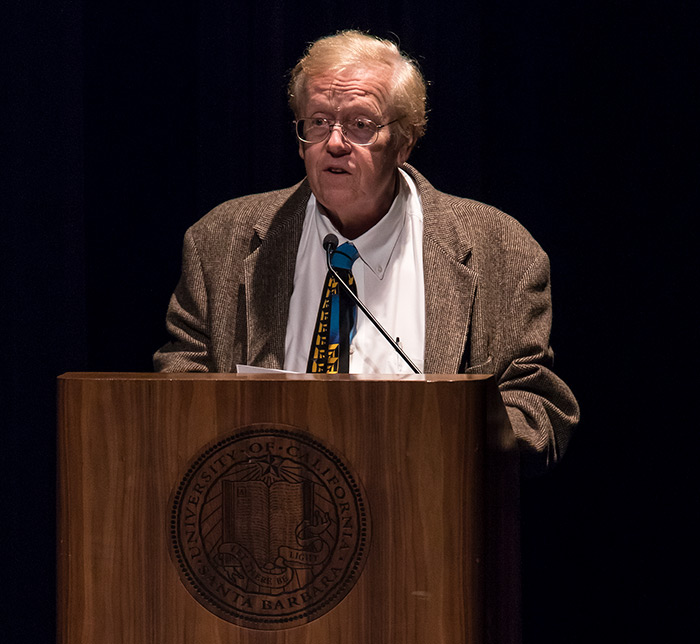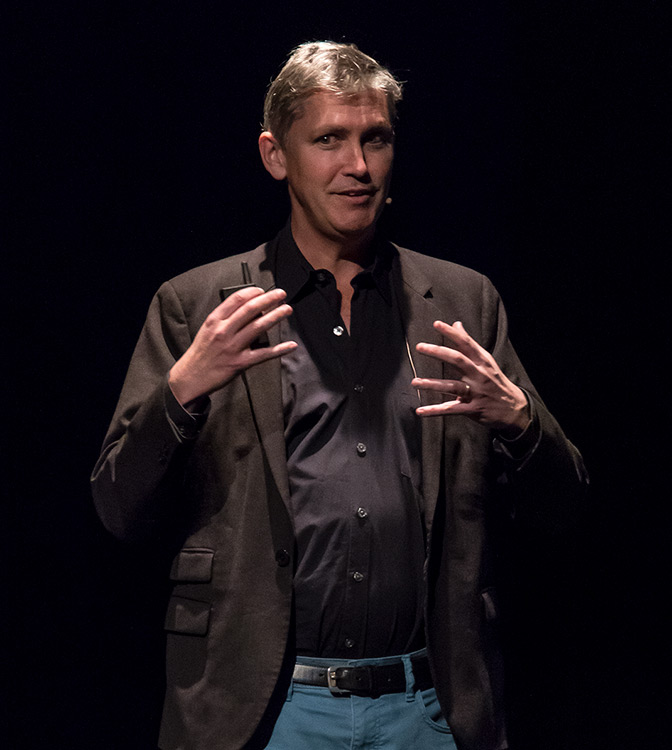There are two sides to this word, one perhaps leading to the other. As a verb it can mean to be curious to know something or to be amazed by something. As a noun it connotes surprise, astonishment and admiration for something unexpected, fascinating, beautiful or even mysterious. The bestselling author Steven Johnson wonders about knowledge, history, and wonders (the noun). He began his talk for UCSB Arts & Lectures with a short film about his latest book “Wonderland: How Play made The Modern World.” In it he outlines the path from prehistoric flutes carved from animal bones to computers to illustrate the point that many technological innovations are born from the desire to create something playful. Self-playing musical instruments led to automated weaving looms, the typewriter and the software to run computers and the internet, and a lot of other wonders in between. UCSB Professor John Tooby began the evening by expanding on the subject of eighteenth century chemist Joseph Priestly who discovered oxygen, among many other things. Johnson mentions Priestly in his book for coining the name “rubber” for the material used to make balls for games played in pre-Colombian Mesoamerica and traces how those games led to erasers, vulcanized tires, shoe soles and chewing gum. All pretty wonderous stuff.

Author Steven Johnson – UCSB Arts & Lectures 11/29/16 Campbell Hall

UCSB Professor John Tooby introducing the lecture 11/29/16 Campbell Hall

Author Steven Johnson – UCSB Arts & Lectures 11/29/16 Campbell Hall




